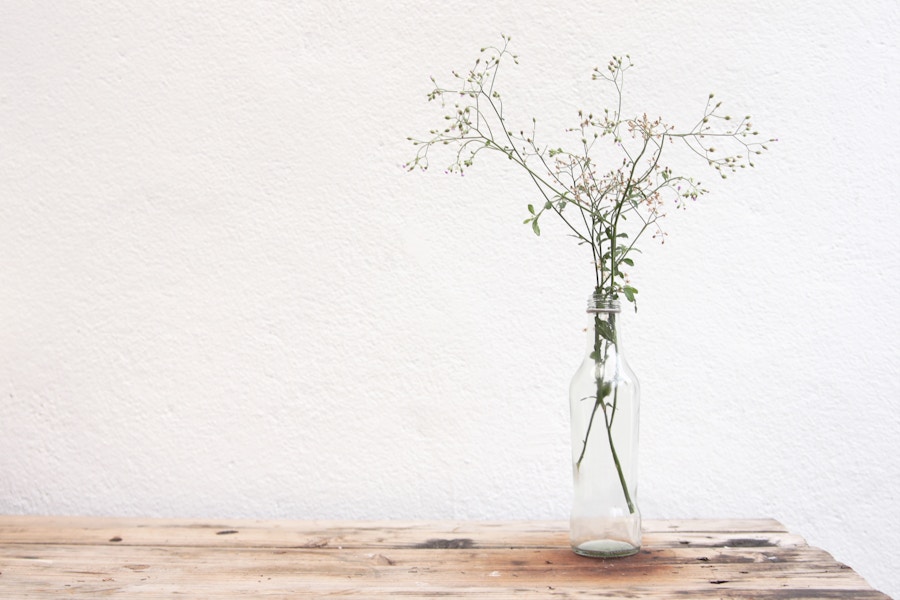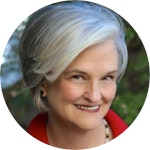Carol decided to try an experiment. Several of her friends at work were giving up things for Lent and she decided to join them (even though her church didn’t practice Lent). To her husband’s surprise, she gave up shopping. Once a week she did grocery shopping for her family but she didn’t buy anything for herself for forty days.
When she thought about something she wanted to buy during that time, she said to God, “I’ll let it wait. You are enough.” By the end of the forty days, she’d forgotten about most of the things she wanted. Thinking back on her experiment, she says: “Life was so much less hectic. Being in stores messes with your mind. It convinces you that you really need things you don’t need at all.”
Such experiments with simplicity (actually, frugality) are about learning to be content with whatever we have (Phil 4:11). They help us redefine the good life as “the life that is truly life” (1 Tim 6:17 – 19). They teach us to live with less rather than satisfying every desire for more. They help us learn to ask ourselves, What can I get rid of? rather than, What do I want to buy? As a result, when we have a little more, we don’t think of how we can spend it but how we can use it to help others: a flat-screen TV or helping our friends with their mortgage payment?
Helping others is what the apostle Paul said those who are “rich in this present world” need to do. (Since two-thirds of the world eats mostly rice and beans, those of us who eat beyond that qualify as the richest third of the world’s population.) He urged us “to do good, to be rich in good deeds, and to be generous and willing to share.” We ask God, How do you want me to manage the resources you’ve given me?
Stuff Doesn’t Make Us Happy
An unexpected result of frugality is a more satisfied heart: we relish what we have rather than resenting what we’re missing. Recent studies show that as lower-order needs (food, clothing and shelter) are met and people become happier, their priorities shift. People begin caring about things money can’t buy such as love, significance and meaning. Beyond the basics, money doesn’t buy what makes people happy. In fact, as prosperity increases, there is usually a tragic erosion of family solidarity and community integration, and individuals become more and more distrustful of each other and their political institutions.
This bears out the theme that underlies so many verses and stories of Scripture: Love people and use things. Loving things and using people leave us weary and wanting and will never give us a satisfied heart.
In our first year of marriage, we lived in a 10-foot-wide mobile home that provided us with a cozy nest. But while visiting my in-laws, I often browsed through catalogs and plotted how I might afford certain things. My father-in-law would smile and say, “Wait a year and see if you still need it.” He knew what he was doing. If I kept my nose out of the catalog, I never thought of it again. Looking through the catalog distracted me from a rich life of learning how to be married, finishing college and reaching out to the folks around me. Materially, we had just enough and were satisfied.
Choosing Not to Own and Aquire
To live in simplicity is to go against our culture. The innumerable commercial messages average Americans receive each day convince us that we need a little more. To be pro-active against this requires an abiding trust that God has provided what we need and will continue to do so.
Practicing frugality means making intentional choices to keep or let go of possessions we already own (clutter?) and what we acquire. This begins as an issue of stewardship but becomes a revealer of what’s in our hearts. How does it feel to pass up buying a shirt that would make you shockingly attractive? Why is it not OK to use yard tools that are older than dirt but still work well? Why do I resist getting my sofa repaired instead of buying a new one? Such challenges help us look deeply within ourselves.
The Heart Exam
When we want to buy something (or acquire it another way), it’s wise to consider the motives that drive us. We’ll discover feelings and desires we didn’t know we had, such as:
- inadequacy (owning certain items to prove I’m important),
- people-pleasing (getting others’ approval by having the latest clothing or gadget)
- perfectionism (making sure I have just the right high performance rims for my car’s tires or buying my children everything they want to feel like I’m a good parent).
Recognizing these and other motives moves us to begin asking God: Why am I so needy? How will I learn to let You, O God, be enough? Show me what I need to know about You and how You care for me.
Once a month I have an appointment not far from a large, college-slanted book store. I used to drop by there on my way home every month, coming away with at least one purchase. I confess I felt good as I drove home — as if I had friends (books) in the seat next to me. Finally I asked God, What’s going on here? Is there anything unhealthy in this? While some of it was my healthy desire to learn and grow, it was also about having “smart” books because I hang out with some smart people. It was also about my desire to cocoon away my life reading rather than reaching out and loving people. In God’s gracious presence, I even began to consider all the books I had at home that were unread. So I decided to see how many months I could go without visiting the bookstore. It’s been a good experiment.
This heart exam provides great fodder for our devotional life and discussions with friends. We forego buying some little thing and say to God: So, Lord, if you are my shepherd, that means I don’t need this. Would you help me believe that you provide everything I need? Slowly we begin to look to God a little more as the companion of our life and learn the joy of a simple, satisfied life.
Where to Start
Consider the list below. (You’ll probably think of ideas that suit your life and wants better.) If you did one or two of the following, how would your life be more focused on what you believe is important? How would it shape your character? What qualities might be built in you? What would you have more time and money for? How might it help you invest more in people and less in things?
- Refused to enter any kind of store more than once a week
- Bought a new car every 10 years and not before
- Moved to a smaller home, condominium or apartment instead of a larger place
- Lived on a weekly allowance of 10, 20 or 30 dollars
- Ate out less than once a week
- Gave away a piece of clothing every time you bought a new piece of clothing (even from a thrift store)
- Give yourself a “favorite item” allowance, such as a book allowance or power tool allowance (or computer gadgets, clothing, health and fitness aids, grooming & beauty items)
When we do such things, we aren’t practicing legalism. We don’t want to create pride in how well we obey a set of rules we’ve invented. The point is to make space for God in our lives, to love God with all of our selves and to love others as ourselves.
This article is adapted from Jan Johnson’s book, Abundant Simplicity, with permission from InterVarsity Press.
Text First Published April 2011


